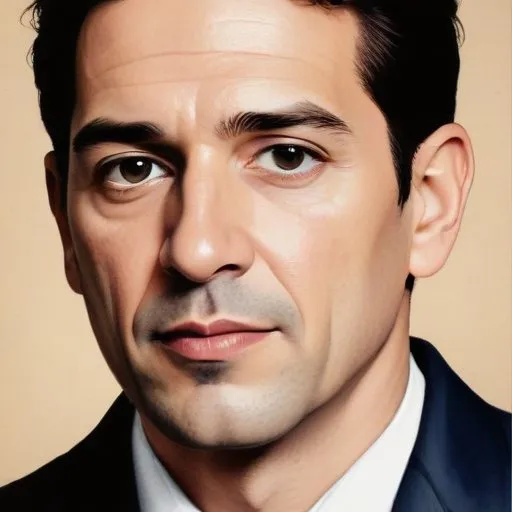
A Spanish filmmaker celebrated for his witty, satirical comedies that critique Spanish society and politics, often incorporating dark humor and social commentary.
Luis Garca Berlanga is renowned as a pioneer of modern Spanish cinema, celebrated for his biting social satire and incisive critiques of Spanish culture under the Francoist dictatorship. His films are a testament to his unwavering commitment to artistic expression and social commentary, earning him international acclaim and numerous accolades.
Born on June 12, 1921, in Valencia, Spain, Berlanga came from an affluent family. His father, a Republican politician, was arrested and sentenced to death after the Spanish Civil War. To avoid his father's execution, Berlanga enrolled in the Blue Division on the Eastern Front of World War II.
In his youth, Berlanga studied law and philosophy, but his true passion lay in filmmaking. In 1947, he enrolled in the Institute of Cinematographic Investigations and Experiences in Madrid, marking the beginning of his remarkable journey in cinema.
Berlanga's directorial debut in 1951, That Happy Couple, was a collaborative effort with Juan Antonio Bardem. Together, they co-founded the film magazine Objetivo in 1953, which became a platform for Spanish filmmakers to express themselves freely.
Berlanga's long-standing collaboration with screenwriter Rafael Azcona resulted in seven films between 1961 and 1987. Their partnership yielded some of Berlanga's most iconic works, cementing their status as a dynamic duo in Spanish cinema.
Berlanga's contributions to Spanish cinema are immeasurable. He fearlessly challenged the status quo, using satire and irony to expose the flaws of Franco's regime. His films continue to inspire generations of filmmakers, solidifying his position as a pioneer of modern Spanish cinema.
Throughout his career, Berlanga received numerous awards and honors, including the FIPRESCI Prize, the Golden Shell, and the Goya Award for Best Director. His legacy extends beyond his films, as he played a significant role in shaping the course of Spanish cinema and beyond.
Berlanga's passing on November 13, 2010, marked the end of an era, but his films remain a testament to his unwavering commitment to artistic expression and social commentary. As a maverick of Spanish cinema, Luis Garca Berlanga's influence continues to reverberate, inspiring new generations of filmmakers and audiences alike.

Born in 1921
A renowned Spanish actor, director, and playwright who excelled in various genres, including drama, comedy, and satire, leaving an indelible mark on Spanish cinema and theater.
Born in 1922
Acclaimed Spanish filmmaker behind gritty, thought-provoking dramas like "No Country for Old Men" and "Biutiful", known for his dark, poetic storytelling style.
76 Years Old
Acclaimed filmmaker behind provocative, visually stunning, and emotionally charged dramas that explore the complexities of human relationships, often featuring strong female leads.
93 Years Old
A renowned filmmaker celebrated for his poignant and visually stunning explorations of Spanish culture, politics, and identity through cinematic masterpieces like "Carmen" and "Flamenco".
98 Years Old
A renowned filmmaker behind provocative and sensual dramas, often exploring themes of love, desire, and social norms, with a distinctive style that blends art house and mainstream cinema.